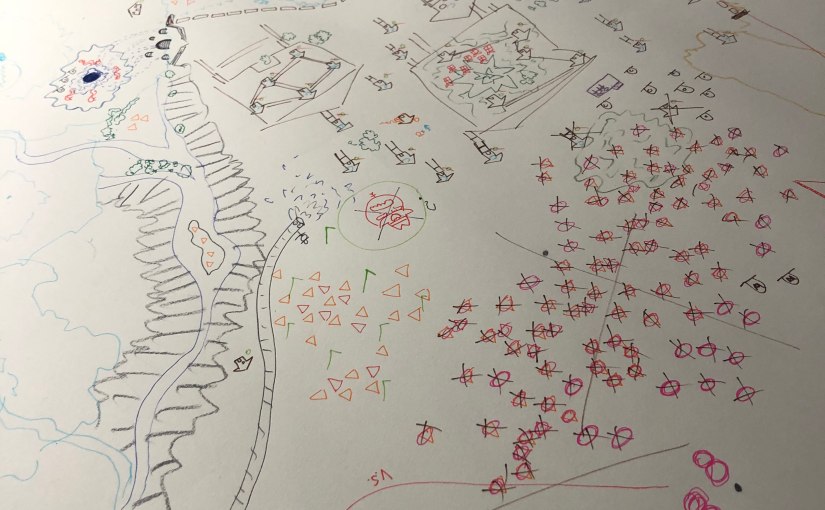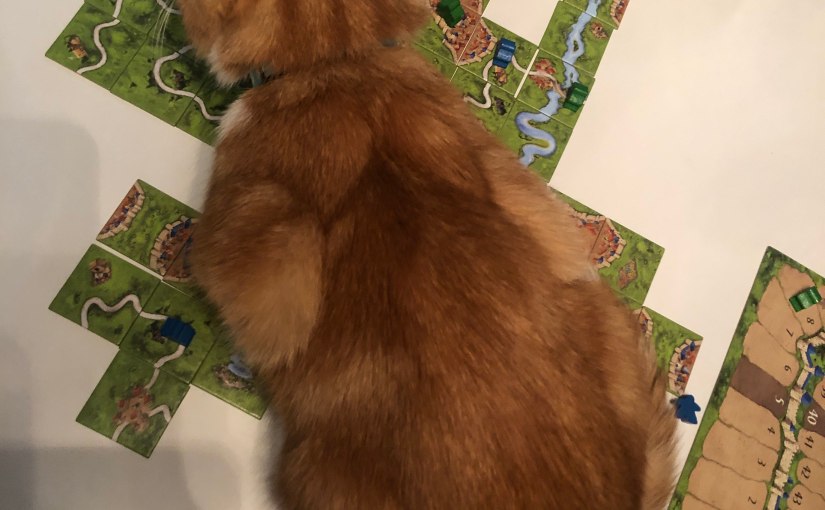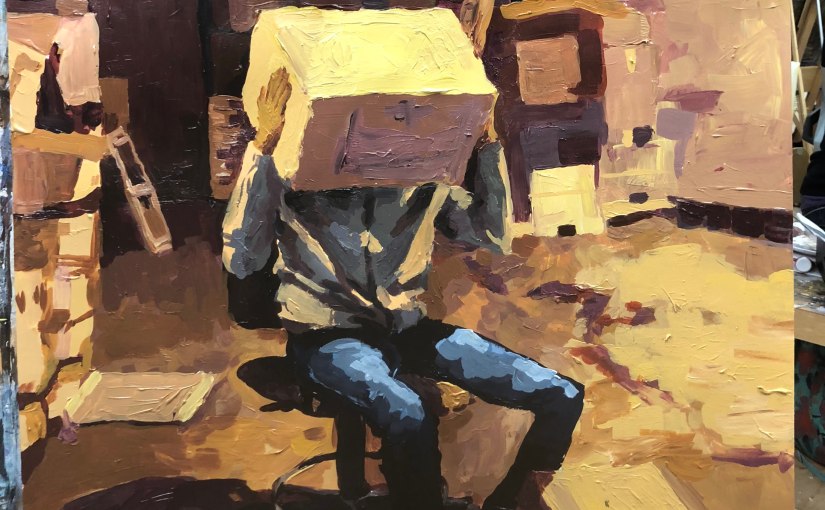Speaking of my missed session last week, and combined with some other things I have been thinking about, I would like to talk about time. Session pacing, session scheduling, spot-light sharing, in-game calendars: the works. This is sort of my typical ‘patchwork’ style of writing, so it’s a little about a lot of things without any depth. Maybe I’ll move on to writing more interesting, complex, specific articles someday? Probably not. Enjoy this for what it is, instead:
First up, session pacing. I’ve heard, on multiple occasions, that I am a “god of well-paced sessions, I wish I could run games like you”, as well as simultaneously someone who said I “could use a lot of work, it feels like the characters don’t accomplish anything”. These comments come from multiple different players from different backgrounds, all in the same month-ish timespan. So, am I good at pacing or not? The answer, unsurprisingly, comes down to it depends on the table. Both yes and no. Nobody wants to hear this, but I genuinely don’t think there’s a science to it. Maybe an ‘art’ – people have tried, bloggers have written dozens of articles about it, and while there are definitely plenty of tips that you can (and should) follow, like “bring a man with a gun through the door” when things get slow, or alternating high-intensity situations with lower-intensity downtime scenarios, and these things will help you improve your ability to control pacing… your mileage will inevitably vary, no matter what you do. I feel like even if I mastered and put all these skills to work as intended by the authors and game designers, someone, somewhere, is going to play with me and tell me it sucks anyway. Someone will also tell me I am incredible. Perhaps even two people at the same table. Maybe even the same player. My best advice, for learning how to pace sessions, then, is to set up a situation where your table has the level of trust in place that the GM is able to ask for and receive genuine feedback, where they can start tailoring to the specific group and find out what works. This is the actual trick to pacing – whatever’s fun, let the fun parts happen. Get rid of the stuff your group finds boring. Even if the fun stuff isn’t full of meaningful choices, it’s okay to still have all your shopping trips play out if the table finds it fun. Earlier this week, in session four of my Stars Without Number campaign, I spent probably far more time on the dance competition than was necessary, and I could have resolved it in a single roll…. but it was fun!
Certainly, if you were re-publishing the game as it happened into a book, perhaps you would cut out a lot of that content to make it more fun for the readers. Or perhaps if you ran a stream for a live audience, you want to keep things exciting for the majority (that’s a whole different can of worms). But in our case, the only ‘readers’ that need to enjoy the game are the people at your table. After that – you can always consult the advice blogs for your specific situation, but on their own, in a vacuum, it won’t work. That’s the trouble with GMing, there are almost no wrong ways to do it. I’ve had a lot of personal struggles with doing lot of GM theory-crafting and then when I put it to the table it turns into a mess. That’s a whole other subject, but yeah. Relax. My advice is to just run the game how you think feels best in play, if you find yourself spending too much time on one thing and not enough on another, check in with your players, and then try using different skills to speed it up or to slow it down. You’re always relearning everything with every new table you put together.
Putting those tables together is a whole different beast, though. You’ve heard it countless times: the greatest enemy in tabletop games is real-life scheduling. Players get married and need to take a month off for the wedding, suddenly have kids and need to work around their bed times, call in sick and can’t make it one week, or even end up leaving the table permanently for all kinds of reasons. I’ve had my heart broken several times over by a Numenera game last year that just didn’t work out – people weren’t communicating, we had different ideas on how often to play – things had changed over the past three years. I was left frustrated and upset and I don’t think there’s anything that I could have done to make it better.
Honestly, the best thing I can say here is to state your commitments, find people who are open and honest about their scheduling, communicate often, keep the overall game relatively short (i.e. only 10 weeks versus expected three years), and run regardless of attendance (one on one sessions can still be fun!). Or run an Open Table for as long as you feel like it. There’s not much to say, except it’s frustrating. The long-term things, the multi-year epics… those only complete with luck, a lot of player turnover, or a lot of money. With a lot of vetting practices (maybe I’ll do another post on how I acquire players) and good communication abilities, you absolutely can get a group that plays together and stays together, though, so don’t give up!
All these different players you do manage to get into the same timeslot, though, have other problems: Returning to the ‘fun’ talk, what happens when one player loves shopping trips and another finds it incredibly boring? The easy answer is ‘play with people who all find the same things fun’ and there’s no problem, and there are definitely some aspects of gaming that you cannot compromise on, but the likelihood of actually finding people who all love the exact same things and can bring enough fresh perspective to make the narrative interesting is probably somewhere in the 0.000000000001% range. As much as I love telling people to kick truly uncooperative players, and screaming bankuei’s everlasting great advice that you should be meeting at the game, there are always going to be situations where you have to acquiesce to the other person’s wants. So, the solution is ‘sharing the spotlight’. Make sure, at the end of the day, that most people are having fun, and get as much of a share of the ‘spotlight’ on their fun parts as they want.
Notice how I didn’t say ‘equal’ share. I could almost post an image of that ‘standing-on-boxes’ equity picture; I won’t but it’s the same idea – make sure everybody is having fun the way they want. Usually, it’s that you need to make sure everyone, including the GM, has roughly the same amount of speaking time – however, there are exceptions, such as one of my SWN players who deeply prefers to ‘spectate’ and only have small portions of personal roleplay per session. I have talked to him about this on multiple occasions; talked to that table about this, and everybody is on board with the situation of him mostly listening and putting forward his opinion when it matters. It’s all down to your table and what works for everyone, and listening to your players and adjusting as you go.
I left a game of Burning Wheel recently for this exact issue: it wasn’t the Game Master’s fault, per se (though I think I would have appreciated a more compromising response to my feedback), but it definitely wasn’t the right fit for me. We typically spent multiple hours of session time on a single player, with the expectation that ‘eventually everyone will get a solo session’ of sorts. This didn’t sit right for me, not because it’s terrible game mastery, but because it wasn’t what I found fun. I didn’t want to essentially spectate on a podcast for three hours, and I also didn’t want to ever end up in the situation where I had to narrate my own PC for two hours straight. Perish the thought. I don’t like being the main character, and though I absolutely want good sections of focus – I require a balance, and that table just didn’t have that. I spoke about it and the GM’s decision was final – this is how we’re running it. Back to bankuei – they decided to play a specific “game – for this specific rpg, this specific campaign you’ll be playing, and this particular group of people” and either the expectations earlier had some crossed wires, or I agreed to it and decided it wasn’t what I wanted. I’m not sure, but they’re having fun, and that’s what matters.
So, however you finangle your spotlight to your group, the point is keeping an eye on the clock and making sure you’re actually meeting the expectations of everyone. This shouldn’t be just the GM’s job, but the majority of the responsibility does fall on them to keep an eye on things, and it can be very easy to lose track of time if you get caught up in something the GM personally finds fun (see: my dance competition – I made sure to do a scene swap midway through to give the other players something to do that wasn’t just playing a dance minigame). However this works for you – whether that’s setting actual timers, or just making sure you have a very visible clock in your direct view, doesn’t matter, but you do need to be mindful. That’s far more important than overall pacing – making sure everyone is getting their fair share of what they want out of the game.
On a final note, despite me personally being fine with what happened in my Burning Wheel situation, I do want to point out that generally this really should be a ‘per session’ or ‘per two sessions’ basis. No one should be left out of a game’s fun for an entire session – if such a situation were to need to occur, just run a solo session or smaller group for the players it matters for and maybe give players a short summary to read. Offer them the choice to listen in or not. As mentioned when complaining about scheduling – we only have so much time in our lives. We want to spend it on things that matter, and every three to four hours of gameplay should be fun for the entire table. That is, if a particular player hates combat, it’s okay to have an hour of combat they slog through – but if the whole session is going to be four hours of combat, maybe telling that player to skip that week is better than having them there and suffering. Or, you know, don’t make sessions that are going to be four hours of combat if you know one person hates it.
Time in games is wiggly. For every real-life week, an hour could pass in the game world. Or It could be four months of content (see pacing, earlier). I actually had this article in my drafts when Adventure Forecasts by PCD was published (great article, go read it) and felt I should also add in a note about it, so here it is (if a bit awkwardly placed, it still fits the theme of the post). I’m not a very talented OSR blogger in particular, so I don’t think I have many important personal opinions to say, but here are my opinions on the above:
A living game world is a lot of work. A game where everything you do is realistic and makes sense is a lot of work. Even just writing a calendar of events is a lot of work. I can barely put my own life’s calendar together. The dream of pre-planning all these potential events is something I both want to strive towards, think this article is 100% right in recommending, and something I know is ridiculous for the average layman GM try to achieve. Maybe a professional who only goes GMing as a full-time gig could have the time and resources to spend on it. I think using the technique of having pre-scheduled, missable events in smaller doses throughout the campaign to add verisimilitude, while also keeping ‘static’ events that happen whenever the players interact with them, is a good mix that will keep your mind sane. A GM’s time in real life is just as important as time in the game itself. Don’t go burning yourself out writing potential hooks for every non-player character’s birthday in the game, or countless planet’s worth of holidays. Only do this if you genuinely have fun writing such things.
Time is the only thing we can’t get back in our lives. Spend it on things that create fun.






